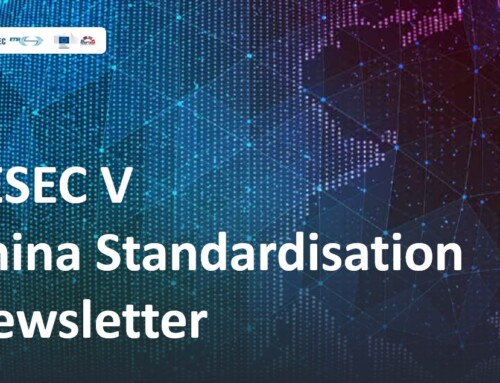June 2025 – The Ministry of Industry and Information Technology (MIIT) has released the Implementation Plan of Further Promoting the Green and Low Carbon Standardization Works for Industry and Information Technology Sectors (hereinafter referred to as “the Plan”) to enhance the green and low-carbon standard system, supporting the transformation and upgrading of these sectors.
The Plan aligns with key national policies, including the National Standardization Development Outline (published October 10, 2021), the Accelerating the All-round Green Transformation of Economic and Social Development (published July 31, 2024) and the Accelerating the Promotion of the Green Development of the Manufacturing Industry (published March 1, 2024). Structured into five chapters and an annex, it outlines overall requirements, key focus areas for standard development, and supporting measures.
Key Targets
The Plan sets two-phase goals for establishing robust green and low-carbon standard systems in industry and information technology sectors:
- By 2027: The standard systems will be significantly improved, with over 100 new or revised standards introduced, boosting standardization efficiency.
- By 2030: The foundation for green and low-carbon standardization will be solidified, with a more comprehensive system playing a stronger supportive role.
Priority Standards
The Plan highlights the following key areas for standard development:
- Urgently needed standards, particularly for carbon footprint accounting and resource utilization.
- Innovation-driven standards, supporting green industries and the integration of digitalization with sustainable development.
- Upgraded standards, including energy and water conservation, as well as green manufacturing.
Next Steps for Foreign Stakeholders
The Plan emphasizes accelerating the establishment of a Technical Committee (TC) on green and low-carbon topics under MIIT, with key measures including:
- Coordinating standardization efforts and drafting guidelines for standardization system construction.
- Strengthening standard dissemination and implementation in policy-making, testing, inspections, and government procurement.
- Improving lifecycle management of standards and enhancing collaboration among standardization bodies.
Additionally, the Annex provides a detailed list of proposed standard research projects, signaling potential future regulatory developments in the sector. This initiative underscores China’s commitment to fostering sustainable industrial growth through structured standardization, offering opportunities for international engagement and compliance alignment.
Chinese Sources: https://www.gov.cn/zhengce/zhengceku/202506/content_7029842.htm
https://www.miit.gov.cn/jgsj/jns/gzdt/art/2025/art_872238e4e1324c89898b24bfdcafdd97.html




